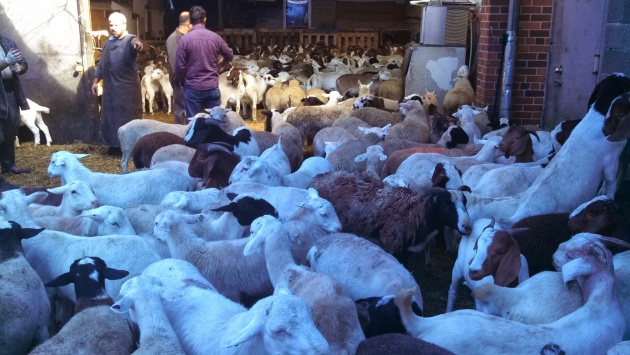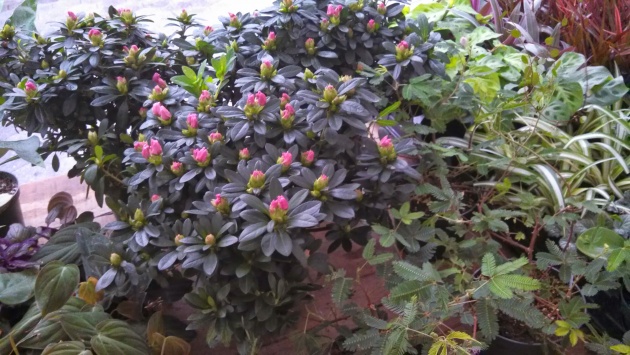
November is Diabetes month and many nations around the world including Saint Lucia are coming to grips with how well they are doing in their fight against this silent killer. It is sad to say that the news/report from the trackers of diabetes is not good for the habitants of Saint Lucia. According to the Canadian report and the message from the Saint Lucia Ministry of Health, the rate is alarming and instead of regressing it’s progressing. Those who heard of this alarming report were ignominiously surprise. At the Saint Lucians Perspective which is a segment of the Examer Company Limited, we are endeavoring to raise the awareness of the seriousness of this disease and how to prevent it, using resources available to us in Saint Lucia.
Just a few years ago you barely heard about diabetes in Saint Lucia but now it has become a widespread epidemic. How did we get there as a nation? To answer that question, we have to look at how far we’ve moved away from our Traditional Social Structures. When we were within the confines of these structures this disease was kept in check but now we see a complete reversal. As soon as we begun moving away from those values and traditions that kept us healthy as a nation we inherited this diseases, diabetes. Here are just two reasons why we are facing this epidemic:
-
Dilapidation of Organic Food, growth and consumption.
-
The Idleness of many in our generation.
The idea of giving up on consuming our organically grown produce in exchange for process food/conveniences food was brought about by us and those who influence our public policies. To be quite frank we have simply become westernized. We are abandoning our Traditional Social Structures, our old way of cooking and as a result we are paying the price.
In this blog we are going to focus more on the social aspect contributing to diabetes and what we can do to slowly wean ourselves out of it using the concept known as Positive Deviance.
In Saint Lucia where the land is rich and fertile, conducive for growing natural organic food, there is a food scarcity. How can that be? When we look around there is no shortage of hard liquor, yet our food supply is in jeopardy. Ironically the thing that we need the most to keep us healthy and strong, our naturally grown foods are dwindling. Shouldn’t it be the other way around? Food is vital to life and as an extension our health, yet we are more focus on drinking and having “a good time” than on spending time preparing healthy and nutritiously cooked meals for ourselves and our families. There is nothing wrong with having a good time but should it be at the expense of our health? Can we find a balance between having a good time and eating the foods that will keep us healthy? All too often the men spend the day at the bar drinking and when hunger kicks in, convenience food kicks in as well thereby resulting in the high rate of diabetes. This is a lifestyle that is being repeated throughout the island. Men have resorted to taxi service as a soul means of survival while the lands lay desolate. Choosing to cater to the tourist industry as the only means of living is not the solution. The solution lies in finding the balance between preserving our Traditional Social Structures and tourism. We should not trade one over the other they both need to be kept in their proper place. Sometimes the easy way is not always the best way out. Finding that equilibrium between the Agriculture and tourism will ultimately produce a healthier nation.
Simple put, if we have to do something about cutting down on the rate of diabetes we need to go back to growing and consuming organic foods. Today, when the life expectancy has been extended our people are dying at an early age. WHY? The answer is simple; we stopped doing what worked for us in the past.
We complain about the high rate of unemployment yet the land lay desolate crying to be cultivated. With a population less than 180,000 why can’t we be auto-sufficient with what is naturally given to us whiles preserving our Traditional Social Structures, especially one as vitally important as our food consumption? It does not take much to figure this out, the answer is quite simple, just follow the order GROW THE LAND + EAT HEALTHLY = LIVE HAPPY. the implementation of this simple equation will no doubt produce a stronger, healthier nation. It is then that we will finally get a hold on this disease and begin the process of regression.
One of our well-respected Caribbean’s pioneers Bob Marley lamented in his famous lyrics “Emancipate yourselves from mental slavery” continues to echo far from his time down to our era and is the sequel of our problems. Part of that mental Slavery is the idea or the thinking that the solutions to our problems are somewhere else and not within our reach.
Today, we are decrying the high rate of diabetes a dilemma that could have been avoided. We have noticed a rapid dilapidation of the Traditional Social Structures that once kept our societies together with melancholy. Many find it hard to find fresh produce in local communities; and the few places that offer it, carry just a limited amount at an exorbitant price. It is appalling to see how people have grown such a strong desire for conveniences food or fast food as it is more commonly known while abandoning their own healthy organic foods. Interestingly, the very same western lifestyle many seem to have embraced, the consumption of process food is becoming a thing of the past in the West. The western world are moving away from Convenience Food and replacing it with organic foods; whiles we in the developing world are welcoming foods they chose to leave behind and categorize as unhealthy with open arms, without thinking about the damage it is causing to their health. Knowingly or unknowingly people are being deeply influenced by what they see and watch coming from the West which has resulted in them abandoning their traditional healthy way of living and eating, which have been proven to be the best social, economic and healthier way of life.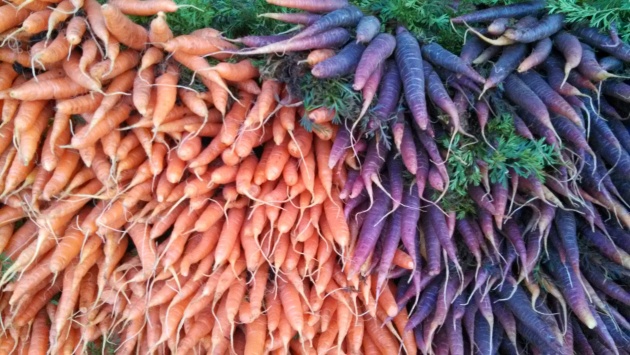
Another area of concern is the collapse of traditional Saturday morning market where many from the countryside often bring all their natural and organic products for sale. The markets are becoming more and more sporadic, lack of appeal and uninviting. Recently we visited one of those early morning markets in Soufriere a town that was once hustling and bustling with activity and known as “the bread basket of Saint Lucia”. That morning we visited the market, we were disappointed because what we expected to see paled in comparison to what it was once known for. What we saw were a few old folks who could barely do much for themselves selling a few meager items. With all due respect to our elderly we have to say Kudos to them for trying their best to keep the tradition going. These old folks realize that toiling the land not only puts bread on their tables but also keep them healthy and strong. They are part of the few who are struggling to keep the Agricultural Industry in existence. They are the ones who painfully made their way to the market, rain or shine. This should cause us all to ask ourselves the obvious question, what will happen when these old folks are gone? Contrary to the thinking in developing countries that farming is for older folks, viewed more or less as a lifestyle of the older generation is becoming a bigger and better industry in the western world; where people are more conscious of what they eat now more than ever, today when you look around the world, it is young people that are embracing the idea of growing the land as a healthier and purposeful way of life. They recognize that farming brings them a level of satisfaction and is part of the essence of life. (thekaleproject.com/)
Today, the result of abandoning the field and striving after the wind of illusions (the easy way out) has brought us where we are today, an alarming high rate of diabetes, high blood pressure, depression, and short life expectancy. Farmers Market is a universal thing and every country you go to, there is always a place, date and time where farmers gather to sell their produce. So why aren’t we doing the same? We have all the right elements in place; all we need is the right attitude. Our misinterpretation of the Western civilization comes surely with a heavy price. Moreover, governments are spending more money to import food than ever before. Policies such as giving concession to folks living abroad to send barrels of processed goods every year does more harm than good. This particular policy takes away from the local farmers, local economy, schools …etc. 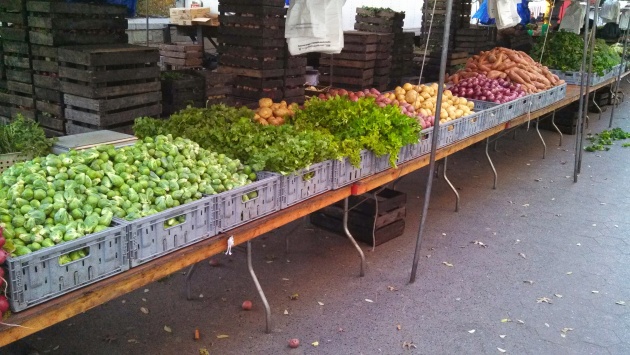
This lugubrious reality reminds us of one of the sayings from late Captain Thomas Sankara from Burkina Faso (West Africa) who says: “He who feeds you controls you”. While our government continues to endorse importation over encouraging local agriculture specifically farming and not educating the new generation about the benefits of embracing the land, we are afraid many diseases will continue to befall us, poverty and unemployment will continue to rise, and not only will our economic be at the mercy of others from which we import our food, but it will not be able to fund the rising medical cost of assisting those living with diabetes.
In view of all the above, Education that helps people to use resources and talents that is available to them is directly related to Social Entrepreneurship. A recent article published by Wall Street Journal in June 16, 2013 issue says: “People are at their most innovative when they work within the constraints of what they already know” This form of education is called Social Entrepreneurship and it is the process of pursuing suitable solutions to our social problems. More specifically, social entrepreneurs adopt a mission to create and sustain social values. They pursue opportunities to serve this mission, while continuously adapting and learning. Social entrepreneurs draw upon appropriate thinking in both the business and nonprofit worlds and operate in all kinds of organizations: large and small; new and old; nonprofit, for-profit, and hybrid in order to stay true to themselves and what has become the more prevalent way of life in the west.
Our mission at the Saint Lucians Perspective is to motivate people in general, especially young students who are still in their formative years, to be able to harness and identify their talents in the area of writing so as to raise awareness on issues confronting them and their societies. A typical example is in regard to our subject of discussion: Diabetes. To encourage them, we award micro scholarships to all who signs up and actively participates in the program. To learn more about this you can email us at isaac@examerofsaintlucia.com and follow us on twitter: @ExamerCompLtd and Facebook: Facebook.com/ExamerofSaintLucia
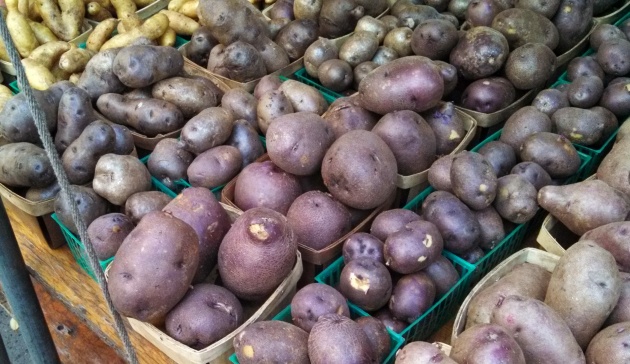
This huge shift towards Convenience Food while abandoning what kept us healthier for centuries, have resulted in an unprecedented increase in diabetes. We realize that more insulin, a manual of verbiage about diabetes for patients will not help eradicate the furuncle; but rather what will help is to Encourage a Healthy and Sustainable Lifestyle, eliminate or update public policies that do not support Local Farmers and the Economy, and Cap Food Importation once and for all.
Moreover, the definition of the Positive Deviance concept according to Wikipedia.com is an approach to behavioral and social change based on the observation that in any community, where there are people whose uncommon, but successful behaviors or strategies have enabled them to find better solutions to a problem than their peers, despite facing similar challenges and having no extra resources or knowledge than their peers. These individuals are referred to as positive deviants. we believe that we have what it takes to be positively deviants and bring about change to our beloved island of St. Lucia.
The Positive Deviance approach is a strength-based approach which is applied to problems requiring behavioral and social change. It is based on the following principles:
- Communities already have the solutions. They are the best experts to solve their problems.
- Communities self-organize and have the human resources and social assets to solve an agreed-upon problem.
- Collective intelligence. Intelligence and know-how is not concentrated in the leadership of a community alone or in external experts but is distributed throughout the community. Thus the PD process’s aim is to draw out the collective intelligence to apply it to a specific problem requiring behavior or social change.
- Sustainability as the cornerstone of the approach. The PD approach enables the community or organization to seek and discover sustainable solutions to a given problem because the demonstrably successful uncommon behaviors are already practiced in that community within the constraints and challenges of the current situation.
- It is easier to change behavior by practicing it rather than knowing about it. “It is easier to act your way into a new way of thinking than think your way into a new way of acting”.
To immediately begin implementing the Positive Deviance concept we need to consume foods that have a high density of nutrients capable of fighting diabetes. Those foods that are readily available and inexpensive in our communities while we begin the transformation of gearing our minds and heart toward renewing the values that work so well for us in the past.
